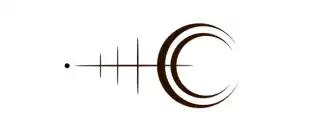The roots of abundance don’t grow in numbers; they grow in the unseen soil of the subconscious.
Many of us carry inherited money beliefs that aren’t even ours. Patterns absorbed not just from our parents, but from entire generations shaped by war, scarcity, colonization, and survival. And yet, most people never pause to ask where their beliefs around money come from. Or how to change them.
My Story: Living Inside the Pattern of Scarcity
Like many others, I’ve had my own patterns to unravel. I grew up hearing the same phrases again and again: “I’m broke.” “We can’t afford it.” “Money doesn’t grow on trees.”
I began experimenting with manifestation and money mindset work in my teens, even as I still lived inside those patterns. Later, when I was preparing to launch my spiritual business, the fears got louder. Who was I to believe I could thrive? Each step forward required me to face the subconscious money programming I’d inherited and rewrite it.
This is what inspired the Abundance Activation Meditation Series. Each meditation was born from real fear, real desire, and real devotion to shifting my internal state. They aren’t just meditations, they’re energetic rewirings. And they’ve changed my life.
How Money Beliefs Get Passed Down Through Generations
Beore the age of seven, a child’s brain predominantly operates in theta waves: a deeply receptive state where everything they hear and observe sinks directly into the subconscious (Siegel, 2012).
In these early years, children don’t just hear their caregivers’ attitudes toward money, they absorb them as unquestionable truths. This becomes the foundation of what many now call subconscious money programming.
If a parent constantly says "I’m broke" or worries aloud about not having enough, that doesn’t just teach the child about finances; it creates a subconscious blueprint. One that links money to fear, shame, tension, or lack.
And these patterns often have deeper roots. Many of our parents were raised by people who lived through war, rationing, colonization, or displacement. Scarcity wasn’t just an idea, it was a reality. Hoarding, penny-pinching, fear of loss; these became survival strategies. But when they’re passed on without healing, they become prisons.
Even the word broke carries an unconscious story. If I came from someone who is “broke,” what does that make me? Not whole. Not enough.
Trauma, Epigenetics, and the Science of Inherited Scarcity
This is where epigenetics offers insight. While we may inherit certain biological predispositions, our environment and emotional experiences can switch genes on or off (Meaney & Szyf, 2004; Yehuda et al., 2013).
Inherited trauma - especially chronic, generational stress - can affect the expression of genes related to safety, abundance, and nervous system regulation. That impact ripples forward until someone does the work to shift it.
As Gabor Maté writes, trauma is not what happens to us, but what happens inside us as a result. And that inner response can be transformed.
Every time you choose to meet money with presence instead of panic, curiosity instead of fear, you begin changing the energetic and genetic story. This is how we break inherited scarcity cycles and initiate a new abundance paradigm.
Breaking the Cycle of Limiting Money Beliefs
Reprogramming the subconscious requires more than willpower. It requires repetition, emotion, and access to deeper brain states; like those reached in meditation and visualization.
This is the terrain where money mindset reprogramming becomes cellular, energetic, and embodied.
One of the most powerful tools here is creative imagining. When you allow yourself to envision something different - not just mentally, but viscerally - you begin to create new neural pathways. Your body begins to believe a new truth. You anchor into a money mindset that reflects abundance rather than fear.
Playfulness is a portal. And in that portal, we bypass the critical mind. We enter the realm where true abundance lives.
A Portal of Practice: Abundance Meditation and the “Fields of Abundance”
One of the tracks in the Abundance Activation Meditation Series is called Fields of Abundance.
In it, you enter a realm overlaid onto this one: a place where whatever you need truly does grow on trees. Money, yes, but also joy. Safety. Energy. Opportunity.
You walk through the field and pick what you need. You collect it, receive it, feel it. And each time you listen, your subconscious receives the message: I am safe to receive.
This isn’t just fantasy. This is how the subconscious mind learns - through image, feeling, repetition, and sensation (Dispenza, 2014). Bruce Lipton’s research into belief biology supports this too: how our cells respond to energetic and emotional input. When you rewire the inner terrain, the outer world begins to respond.
This is why abundance meditation practices can be more powerful than mindset work alone; they bring transformation into the body, where beliefs truly shift.
Abundance Beyond Money: Reframing Wealth as Energy
True abundance isn’t just about income. It’s about vitality. Relationships. Peace. Opportunity. Freedom. The energy you emit and the frequency you live at.
That’s the real medicine of this work. When we stop defining wealth by a number and start relating to it as a current; something that flows through and around us; we begin to magnetize different experiences.
Money is one current. But so is love. So is joy. So is creative inspiration. So is trust in the unseen.
The Abundance Activation Meditation Series works with all of it. Rooted in NLP techniques like anchoring and visualization, and shaped by years of spiritual practice, this series helps you reprogram limiting money beliefs while honoring where you came from, without keeping you bound to it.
Because you are not your ancestors’ fear. You are their wildest prayer.
✧
Abundance Activation Meditation Series
Further Reading:
-
Dispenza, J. (2014). You Are the Placebo: Making Your Mind Matter. Hay House.
-
Meaney, M. J., & Szyf, M. (2004). Environmental programming of stress responses through DNA methylation. Dialogues in Clinical Neuroscience.
-
Siegel, D. J. (2012). The Developing Mind: How Relationships and the Brain Interact to Shape Who We Are. Guilford Press.
-
Yehuda, R., et al. (2013). Holocaust exposure induced intergenerational effects on FKBP5 methylation. Biological Psychiatry.
-
Lipton, B. H. (2005). The Biology of Belief. Mountain of Love/Elite Books.
-
Maté, G. (2022). The Myth of Normal. Knopf Canada.


